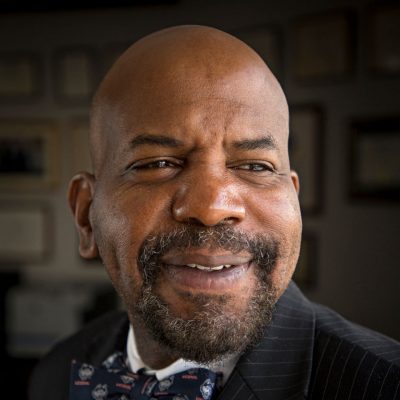 In a groundbreaking achievement, Dr. Cato Laurencin has been named the Inventor of the Year by the Intellectual Property Owners Education Foundation, an accolade that recognizes the world’s most outstanding recent inventors and their profound impact on the nation’s economy and quality of life. Dr. Laurencin’s pioneering work in the field of Regenerative Engineering has resulted in revolutionary technology that promotes bone and tissue regeneration, ultimately enhancing the quality of life for patients. This prestigious recognition underscores the transformative impact of his contributions in the realm of healthcare and regenerative medicine. His innovative work continues to be a beacon of hope for patients worldwide, marking a significant milestone in the field and solidifying his position as a trailblazer in healthcare innovation.
In a groundbreaking achievement, Dr. Cato Laurencin has been named the Inventor of the Year by the Intellectual Property Owners Education Foundation, an accolade that recognizes the world’s most outstanding recent inventors and their profound impact on the nation’s economy and quality of life. Dr. Laurencin’s pioneering work in the field of Regenerative Engineering has resulted in revolutionary technology that promotes bone and tissue regeneration, ultimately enhancing the quality of life for patients. This prestigious recognition underscores the transformative impact of his contributions in the realm of healthcare and regenerative medicine. His innovative work continues to be a beacon of hope for patients worldwide, marking a significant milestone in the field and solidifying his position as a trailblazer in healthcare innovation.
Watch the Youtube Video on Dr. Laurencin’s Award.
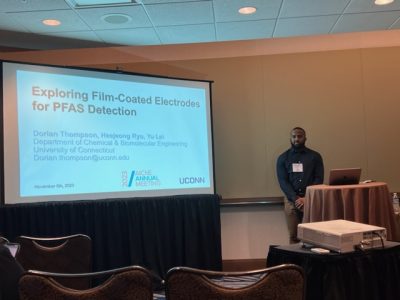 Warmest congratulations to Dorian Thompson for an outstanding achievement—securing the 3rd place in the Graduate Student Competition in Sensors at the AIChE Annual Meeting! Dorian works on PFAS detection under the advising of Professor Yu Lei.
Warmest congratulations to Dorian Thompson for an outstanding achievement—securing the 3rd place in the Graduate Student Competition in Sensors at the AIChE Annual Meeting! Dorian works on PFAS detection under the advising of Professor Yu Lei.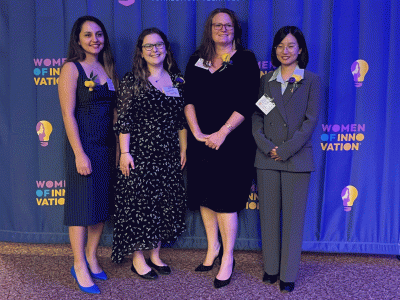
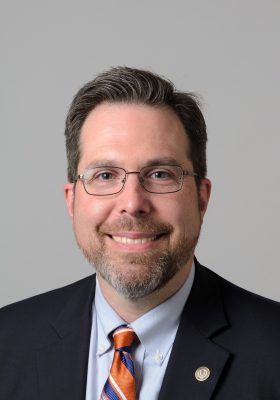 A newly awarded $2.5M
A newly awarded $2.5M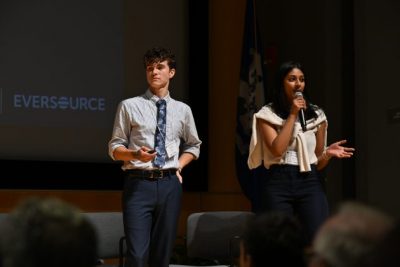
 Warmest congratulations to Dr.
Warmest congratulations to Dr. 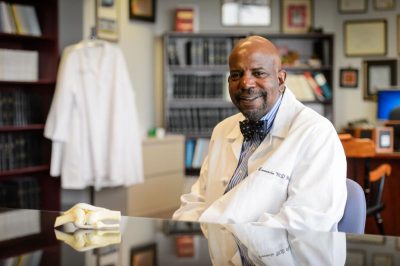 Warmest congratulations to Dr. Cato T. Laurencin, the recipient of the 2024 Kathryn C. Hach Award for Entrepreneurial Success
Warmest congratulations to Dr. Cato T. Laurencin, the recipient of the 2024 Kathryn C. Hach Award for Entrepreneurial Success 
